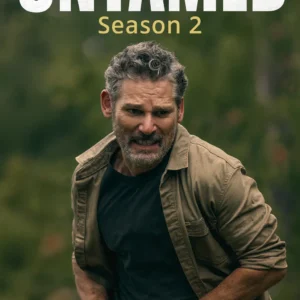
The Ed Sullivan Theater’s iconic marquee has glowed like a beacon for late-night dreamers since 1953, but on a crisp November evening in 2025, its lights flicker with a poignant finality. Inside, the band warms up, the audience hushes, and Stephen Colbert—Emmy-laden host, sharp-tongued satirist, and accidental philosopher-king of comedy—steps to the desk one more time. It’s just another taping of The Late Show with Stephen Colbert, or so it seems. But with only months until the curtain falls in May 2026, every monologue carries the weight of an eulogy wrapped in a punchline. In a recent GQ interview that’s rippling through Hollywood like a velvet hammer, Colbert distilled the surreal ache of it all into one of his trademark metaphors: the end of his decade-plus run feels like spotting a stranger in the dusk, hand outstretched with an object that could be a gleaming knife or a melting ice cream cone. “He’s asking if I want a lick,” Colbert quipped, his voice a blend of wry amusement and quiet vulnerability. “And I’m like, ‘Buddy, I can’t tell from here.’”
It’s the kind of image only Colbert could conjure—equal parts absurd and achingly human, a Rorschach test for anyone who’s ever stared down a life-altering goodbye. At 61, after helming the No. 1 late-night show for nine straight seasons, he’s not just wrapping a gig; he’s closing a chapter that redefined the genre. The Late Show didn’t just survive the streaming wars and cord-cutting apocalypse—it thrived, outpacing Jimmy Fallon’s Tonight Show in key demos and racking up Emmys like participation trophies. Yet here we are, courtesy of CBS’s cold calculus: a “purely financial decision” in a landscape where ad dollars evaporate faster than a bad tweet. Colbert, ever the optimist with a devilish grin, isn’t raging against the machine. He’s leaning in, licking whatever’s coming—because why not? In a world of scripted endings, his feels deliciously, terrifyingly improvised.
Flash back to July 17, 2025, when the bomb dropped mid-taping. Colbert, fresh off skewering Paramount Global’s $16 million settlement with Donald Trump (which he dubbed a “big fat bribe” on air), gathered his writers in a huddle that felt more like a family meeting than a crisis summit. The network brass had called earlier that week, their voices clipped with corporate regret: the show, bleeding an estimated $40 million annually (a figure insiders now whisper was inflated by at least $10 million), was toast. No dramatic finale season—just a graceful exit when Colbert’s contract expires next spring. The audience that night caught the raw edge in his delivery: a pause longer than usual after the applause, eyes scanning the crowd like he was memorizing faces. “Yeah, I share your feelings,” he said as boos rained down on CBS, his smile a tightrope walk between heartbreak and hilarity. “It’s not just the end of our show; it’s the end of The Late Show franchise. I’m not being replaced—I’m being retired, like a good pair of sweatpants.”
The shockwaves hit like a Colbert cold open: swift, satirical, and impossible to ignore. Jimmy Kimmel fired off an Instagram grenade—“Love you, Stephen. Fuck you and all your Sheldons, CBS”—a nod to the network’s sitcom cash cows that apparently trumped late-night loyalty. Seth Meyers and Jimmy Fallon echoed the sentiment in their monologues, turning sibling rivalry into solidarity. Even across the pond, the BBC’s Have I Got News for You ran a tribute segment, with guest host Romesh Ranganathan quipping, “Stephen’s leaving because he’s too expensive? Mate, that’s like canceling Sherlock because Holmes solved too many cases.” Fans mobilized faster than a viral TikTok: petitions on Change.org surged past 500,000 signatures, demanding a reversal; Etsy flooded with “Save Colbert” mugs emblazoned with ice cream cones wielding knives; and Reddit’s r/LateShow spawned threads dissecting every possible conspiracy, from Trump vendettas to Skydance merger machinations. Senator Elizabeth Warren piled on, calling for a probe into whether Colbert’s Trump jabs sealed the deal. “America deserves to know if this was payback,” she tweeted, her words a lifeline tossed into the fray.
But amid the uproar, Colbert’s stayed Colbert: unflappably funny, profoundly reflective. That GQ sit-down at the Chateau Marmont—him lounging poolside in a bathrobe and Bob Evans shades, like a Zen master on vacation—peeled back the layers. “It still seems like a long way away,” he admitted, the California sun glinting off his glasses. “Every show’s got to end sometime, but this? The first No. 1 show to ever get canceled. That’s a hell of a footnote.” He traced the metaphor’s roots to his Catholic upbringing, where uncertainty was the original sin and faith the flickering antidote. “The knife? That’s the fear—the void after the applause dies. But the ice cream? That’s the sweetness of reinvention. Maybe I lick it, and it’s mint chip with hot fudge. Or maybe it’s a shank, and I’m done. Either way, I’m walking toward it.” It’s vintage Colbert: weaponizing wit to wrestle with the what-ifs, turning existential dread into edible philosophy. No wonder the interview’s clips have amassed 15 million views on YouTube alone, soundtracked by fan edits of Colbert slow-mo-skating on an ice rink littered with prop knives.
What elevates this farewell beyond mere cancellation drama is how it mirrors our collective unease with endings in an era of endless reboots. The Late Show wasn’t just monologue mayhem; it was cultural connective tissue. Remember the 2016 election night special, where Colbert’s stunned silence spoke louder than any zinger? Or the 2020 pandemic pivot, beaming from his guestless Greenwich Village rowhouse like a fireside chat for the TikTok generation? He hosted Obama for dad jokes, grilled Trump surrogates into pretzels, and turned bandleader Jon Batiste into a Grammy magnet. Under his watch, the franchise—born in 1993 with Letterman’s ironic cool—evolved into a mirror for America’s absurdities: the good (uplifting field pieces on everyday heroes), the bad (cringey musical bits that even Colbert lampooned), and the ugly (those endless desk-flips that somehow became a brand). Ratings peaked at 3.8 million viewers per night in 2017, dipping to a still-envied 2.1 million by 2025, buoyed by digital clips that rack up billions of streams. “We outlasted Blockbuster, fax machines, and my hairline,” Colbert joked in his first post-announcement show. “And now? We’re bowing out before the dinosaurs make a comeback.”
As the countdown ticks—six months of specials, surprises, and send-offs—Colbert’s teasing what’s next with the coyness of a magician palming an ace. He’s already dipping toes elsewhere: voicing a grizzled admiral in Paramount+’s Star Trek: Starfleet Academy reboot (irony noted, given the network ties), guest-hosting The Daily Show for a week of “Colbert Chaos,” and hinting at a stand-up tour blending Colbert Report characters with fresh riffs on aging. “Podcasts? Maybe. Broadway? Tempting. Or I finally learn to play the spoons like Jon.” His wife, Evelyn, the family anchor through it all, reportedly quipped over dinner: “Stephen, if it’s a knife, at least it’ll be a sharp one.” Their three kids—grown now, with lives far from the spotlight—have been his quiet cheering section, texting memes during tapings to remind him it’s all just TV.
Yet beneath the banter, there’s a tenderness that’s Colbert’s secret sauce. He’s not cynical about the ax; he’s curious. “This show taught me that comedy’s the knife that cuts through the bullshit, but it’s also the ice cream that makes the medicine go down,” he told GQ. “I’m scared, sure. But I’m excited. What if the stranger’s got both? A sundae with a switchblade on the side?” It’s a reminder for the rest of us, glued to our screens as another late-night titan fades: endings aren’t erasers; they’re invitations. To laugh harder at the unknown, to savor the licks we can, and to brace for whatever flavor comes next.
As The Late Show dims its lights, Colbert doesn’t exit stage left in defeat. He struts, bow tie askew, waving a cone in one hand and a dagger in the other—proof that even in goodbye, he’s still the guy making us wonder: What’s the worst that could happen? And damn, wouldn’t that be delicious?




